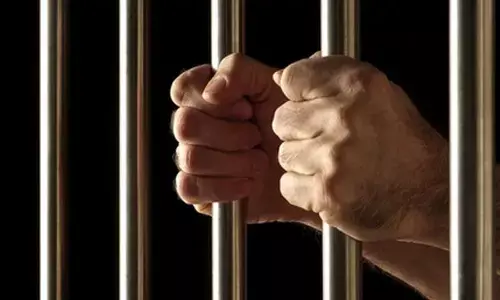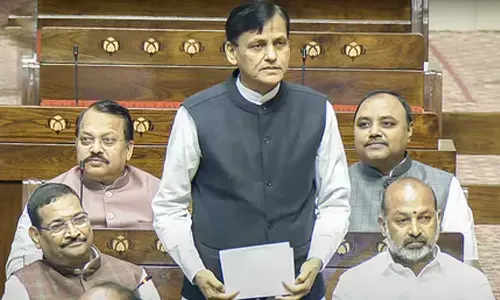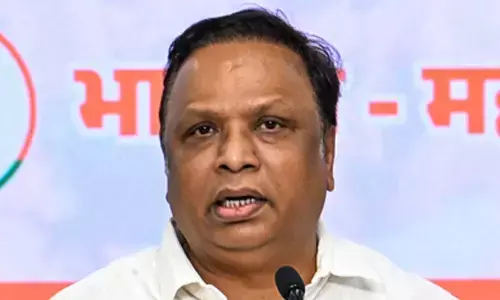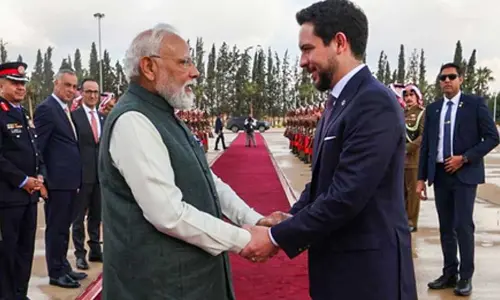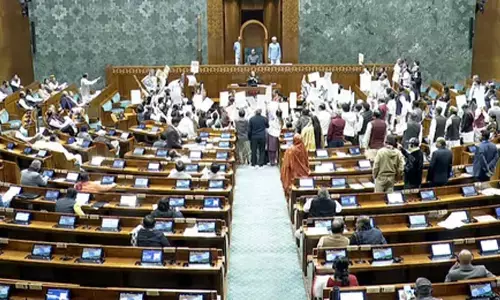Proper implementation of Right to Education Act is the need of the hour
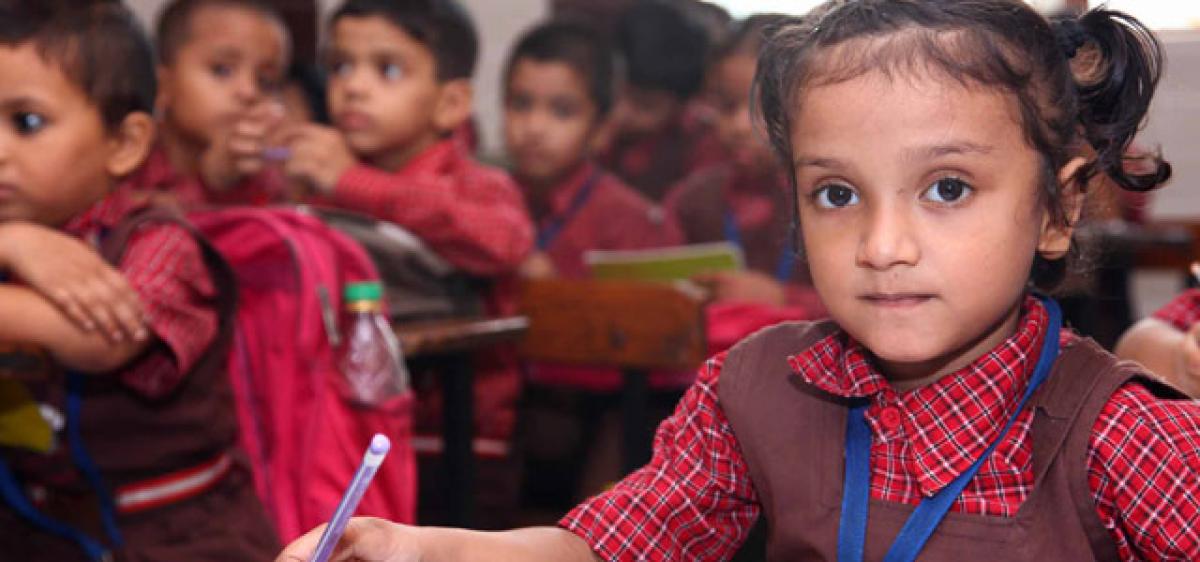
Education has an immense impact on the human society. One can safely assume that a person is not in the proper sense till he is educated. It trains the human mind to think and take the right decision.
Education has an immense impact on the human society. One can safely assume that a person is not in the proper sense till he is educated. It trains the human mind to think and take the right decision.
In other words, man becomes a rational animal when he is educated. Through education that knowledge and information is received and spread throughout the world.
An uneducated person cannot read and write and hence he is closed to all the knowledge and wisdom he can gain through books and other mediums. In other words, he is shut off from the outside world. In contrast, an educated man lives in a room with all its windows open towards outside world.
Without education, a man is so circumstanced he know not how to make best of himself. Therefore, for him the purpose of society is ab-initio frustrated.
Education is powerful because without it, early civilizations would have struggled to survive and thrive as a culture. It is important that adults trained the young of their society in the knowledge and skills they would need to master and eventually pass on.
It is universally accepted that education empowers the people for the full development of human personality, strengthens the respect for human rights, and helps to overcome exploitations and traditional inequalities of caste, class and gender.
Without knowledge you can’t be informed nor can you truly understand the meaning of many topics. It is important to have knowledge, so you can pass your knowledge to the next generation. Education is important because it equips us with all that is needed to make our dreams come true.
Education opens doors of brilliant career opportunities. It fetches better prospects in career and growth. It is a preparation for living in a better way in future with an ability to participate successfully in the modern economy and society. Education is empowerment for socio-economic mobility, an instrument for reducing socio-economic inequalities, and equipment to trigger growth and development.
It is through education that knowledge and information is received and spread throughout the world. There has been a paradigm shift in this sphere: from education as a transcendental and value to education to cost recovery system.
The feature such as commodification of education, private sector’s dominance in higher education, and market-driven education flowing from world trade law stand juxtaposed to the fact that largest pool of illiterates is in India and high dropouts of students even at primary level here is owing to economic reasons.
The linkage of right to education to right to dignified life, equality, freedom and cultural and minority right has made it highly intricate and the extent of regulations relating to it from different perspectives, quite complex. The right to education originates from the apparent motion that it obligatory for the state to provide education to its citizens.
The core of the right to education relates to its substance, which differs from education itself. Effective and transformative education should be the result of the exercise of the right to education, which is a universal human right. The right is about the entitlement to claim the substance of it; it relates to the possibility of demanding the right to education and making it justifiable.
The substance of the right to education is given in broad terms by international legislation but real meaning is given to it as national legislators incorporate it.
The process of incorporation is more important than the process of adhering to an international treaty because it is this incorporation that entitles people to demand for their right to education.
Litigation and RTE
- While studying cases in the High Courts and the Supreme Court from 2010 to 2015 which directly affected rights of a child under the RTE Act by a research centre, it was observed that some provisions of the Act are more litigated than the others.
More litigated issues
- As much as 49% cases on the RTE Act have dealt with questions of access to education.
- The reasons for this may be denial of admission, fixing age-limits for admission to a particular class, transfer of students from one school to another, and conducting screening tests at the time of admission.
- Thus, they feature prominently in the priorities of litigants.
- Further, out of the total disputes settled, almost 24% exclusively refer to Section 12(1)(c) of the Act, which mandates all non-minority, unaided private schools to reserve 25% seats for children belonging to economically weaker sections and disadvantaged groups.
- The denial of admission by private schools, delayed reimbursement by State governments to private schools, ambiguity over definitions of ‘economically weaker sections’ and ‘disadvantaged groups’ are some of the most prominent issues that have arisen in relation to this provision.
- There have been several cases of unaided private schools fighting with State governments over their perceived autonomy vis-à-vis obligations outlined in the RTE Act.
- Other issues included the applicability of the RTE Act to minority schools, applicability of the no-detention policy to private schools, and the definition of ‘neighbourhood’ for admission into ‘neighbourhood schools’.
- While some of these issues are yet to be resolved by the court, others are yet to be enforced by schools themselves.
- It is still unclear if all unaided private schools and some specified government schools are prohibited from conducting admission tests/interviews, as a recent MHRD order significantly weakens this ban.
- Further, many private schools continue to charge donations from children, despite it being illegal under the RTE Act.
Less litigated issues
- The provisions which are relatively less litigated are facilities for disabled students prescribed under the Act. They account merely 5% of the total litigation.
- The provisions mandating basic facilities and adequate infrastructure in schools constitute 11% of the total disputes settled under the RTE Act.
- It has been observed that fewer litigants seem to have approached courts for relief over infrastructural norms and availability of qualified teachers as required under the RTE Act. However it does not mean that these norms are better implemented than more litigated ones.
- These provisions impose positive obligations on States for implementing the RTE Act and, therefore, must be progressively realised as it may not be high priority for litigants who are generally individual parents.
- The provisions on banning corporal punishment and prescription of pupil-teacher ratio in classrooms have not been contested at all, even though circumstantial evidence and news reports suggest clear violations of these.
Limitations of judiciary
- From the above types and frequency of litigations, it appears that the RTE Act remains under-enforced.
- The courts are usually demand-driven and give priority to issues that are brought forward by litigants. Hence, they still don’t have the opportunity to go beyond injunctions and focus on long-term reliefs involving systemic reform.
- In very few cases, the courts have formulated monitoring mechanisms to ensure timely implementation of their orders.
- However in some cases the court’s interventions were instrumental in the implementation of the Act. For instance, courts directed the Gujarat and Telangana governments to implement key provisions of the Act, including section 12(1)(c). This happened as late as in 2015.
Proposed reforms
- The judiciary is expected to play a significant role in enforcing the RTE Act.
- Courts have been acting and have to continue to act as first port of call in the absence of proper statutory bodies and grievance redressal mechanisms.
- However, it is imperative that judicial efforts be supplemented by building awareness and strengthening grievance redressal mechanisms under the RTE Act.
- This will lead to saving of litigation costs as well as remove the barriers to secure rights for parents and their children.
- Side by side, strategic litigation across High Courts should also be explored, for pushing implementation of the RTE Act by state governments.
- In a PIL filed in 2014 by National Coalition for Education in SC, it pointed out that at least 3.77 crore children between the age of 6 to14 years were not in schools.
- It also highlighted sluggish implementation of the RTE Act, leading the Apex Court to direct all states and union territories to respond to these issues.
- Thus, more such efforts by civil society organisations will be useful in getting targeted judicial orders for the effective implementation of the Act.
- RTE is here to stay as its focus on educating all children is core objective of a developing India. Now the executive has to strengthen education delivery mechanisms and summon necessary political will to implement Act. Simultaneously, judiciary will continue hold government accountable and ensure the Act’s enforcement.
- It’s been eight years since the Right to Education Act, 2009, came into force.
- The RTE Act has been touted to be a landmark legislation that seeks to realise the fundamental right to education for all children in the age group of 6-14 years.
- Yet it is being perceived as an ill-drafted and poorly implemented legislation.
- Many schools in country still suffer from lack of adequate drinking water facilities, playgrounds or the necessary infrastructure prescribed by the Act.
- There still exists cases of corporal punishment which has been banned by RTE.
- The learning outcomes which are the indicators of quality of classroom instruction have been found to be badly low.
Thus, it shows that bureaucratic apathy and weak institutional mechanisms are some factors that have contributed to poor and less significant implementation of the Act.
However, there is relatively unexamined indicator of how the law has worked is its contestation in courts.
Expected Questions
- What are the key provisions of RTE Act? Critically analyse its present implementation status.
General Studies 2
- Government policies and interventions for development in various sectors and issues arising out of their design and implementation.
- Issues relating to development and management of Social Sector/Services relating to Health, Education, Human Resources.
- Welfare schemes for vulnerable sections of the population by the Centre and States and the performance of these schemes










